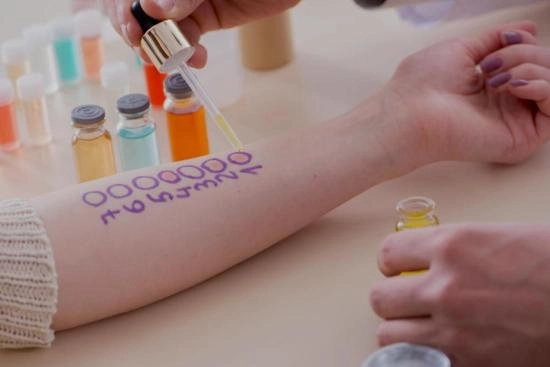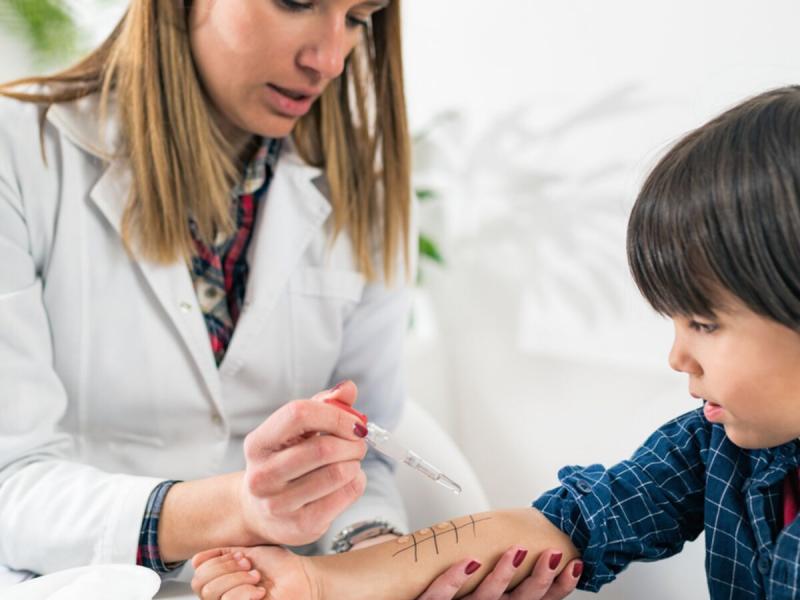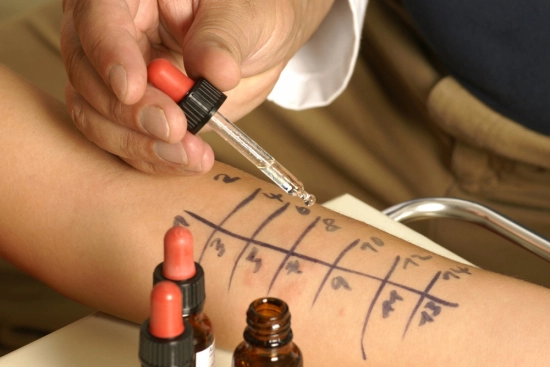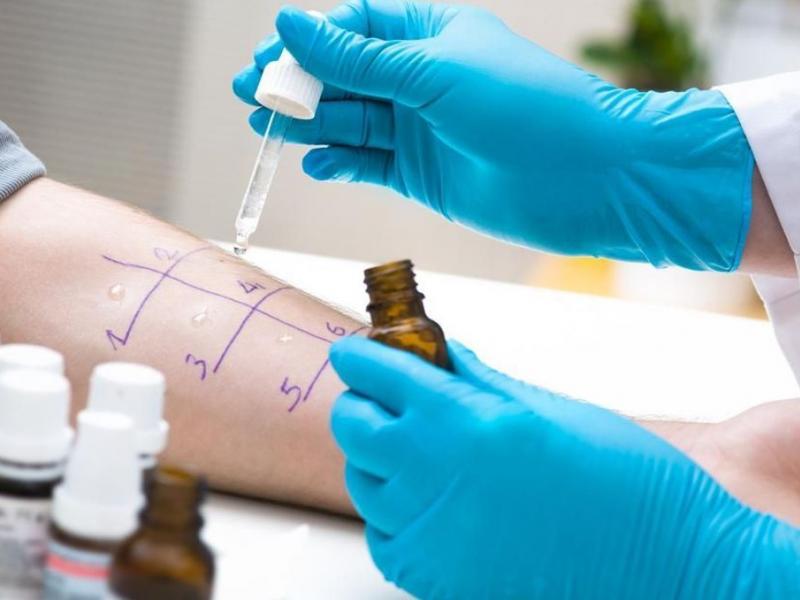Allergology is a branch of medicine that deals with the prevention, diagnosis, and treatment of allergies. Allergies are characterized by an abnormal reaction of the immune system, which perceives a normally harmless substance as harmful.
The allergist's visit and the tests prescribed help to identify the causes of the allergic manifestation. They are then used to determine the most appropriate course of treatment.
Allergy treatment : Best prices in Turkey
Do you suffer from allergies? Turquie Santé offers allergology treatment in Turkey with expert allergologists and affordable prices.
Benefit from a consultation with a leading allergist in Turkey:
- Proven expertise: Our network of highly qualified allergists ensures accurate diagnosis and effective treatment.
- Attractive prices: Take advantage of competitive rates for allergy consultations, tests and treatments.
Opt for a free teleconsultation now and get an immediate diagnosis from the comfort of your own home. More than just a simple consultation, our allergists draw up treatment programs tailored to your specific needs.
You'll also receive precise advice and recommendations on how to better manage your allergies on a daily basis.
Take control of your allergies today! Contact us for a free teleconsultation and start your journey to a healthier life.
Best Clinics with Verified Reviews

- Multispecialized hospital
- 7 operating rooms
- Capacity é of 170 beds

Different types of allergies
An allergy is defined as the reaction of the human body in certain situations, where healthy people do not react. These reactions can be in the skin (dermatitis),lungs (asthma),eyes (conjunctivitis),and nose (rhinitis). The percentage of people affected by allergic pathologies is constantly increasing.
Thus, there are several types of allergies:
- Food allergy: these are clinical manifestations that appear following the ingestion of specific foods. This type of allergy can appear very early, that is to say in childhood or adults. It influences the daily life of the infected person.
- Dust mite allergy: characterized by a runny nose, red eyes, coughing, and difficulty in breathing.
- Cat Allergy: Cats are responsible for 2/3 of animal allergies. It is an allergic reaction caused by the allergens produced by cats. It mainly causes respiratory problems.
- Pollen allergy: also called "hay fever", it is sensitization to pollen, triggered by pollinated plants (by the wind or insects). It is characterized by attacks of sneezing, runny nose, watery eyes…
- Allergic rhinitis and asthma: This is a condition that attacks the airways. Individuals affected by this type of allergy are generally more sensitive than normal people. This allergy can be triggered by the flu, cigarette smoke, allergic reactions against animals, dust mites…

Symptoms requiring allergist consultation
The consultation of an allergist is necessary in case of :
- Presence of certain symptoms such as rashes, respiratory problems, etc.
- Allergy associated with sinusitis, nasal congestion, or chronic breathing difficulties in adulthood.
- Presence of the following symptoms in children: continuous runny nose, stuffy nose, itchy nose, watery and red eyes, repeated sneezing.
- Fever or other associated symptoms for several months a year.
- The ineffectiveness of prolonged intake of antihistamines.

Allergy test: which one to choose?
The first step in allergy treatment in Istanbul is to identify the trigger (e.g. pollen, cats, etc.) and try to eliminate it once and for all.
The allergological test used to treat the allergic disorder varies according to the clinical manifestations of the patient. The appropriate test depends on the body's reaction to the suspected offending substance, the route of exposure (contact, inhalation, etc.) and the nature of the allergen.
The type of test chosen aims to identify the causes of the allergic manifestations and define the most appropriate course of treatment.
To determine the nature of the allergy, two main tests are available at our top clinics in Istanbul, Turkey:
- Prick test: The allergist performs this test by lightly pricking the skin of the forearm with a lancet and applying a drop of allergen. If the test is positive, a small, itchy bump appears at the application site within a few minutes.
- Patch test: The doctor applies patches containing more than one substance suspected of causing sensitization to the skin, usually on the back. The test is read after 48 hours. The appearance of itching, redness or blistering indicates a positive result.

Allergy treatment options
Treatment of allergic diseases prescribed by an allergist in Istanbul, Turkey may include:
- An avoidance diet
- Medication
- Allergen immunotherapy (AIT)
Immunotherapy treatment (ITA)
Immunotherapy, or desensitization as it is known, is the most effective treatment for pollen allergy. It involves administering the allergen in increasing doses via subcutaneous injections or tablets.
The goal of this treatment is to habituate the body to the allergen. This creates an immune protection that reduces or prevents further allergic reactions. The success of allergen immunotherapy (AIT) can be judged by the reduction or disappearance of symptoms.
Medication treatments
In addition, allergists may use several other medications to treat allergy symptoms. The most common treatments include antihistamines, corticosteroids, leukotriene receptor antagonists, and mast cell stabilizers.
Antihistamines prevent the allergic reaction by blocking histamine receptors. This in turn prevents the blood vessels from dilating. The result is the treatment of certain allergy symptoms such as sneezing and itching.
Corticosteroids are hormones produced by the body. They are used to reduce asthma attacks and treat shortness of breath. Leukotriene antagonists suppress the effects of certain inflammatory mediators. They block the leukotrienes responsible for allergies, thus stopping runny noses and sneezing.
Share this page
The price of a consultation with an allergist at our healthcare facilities in Turkey depends on several factors, including the location of the clinic or hospital, the type of consultation, and the allergological test performed. Costs can vary from 30 to 300 euros. For further details, please ask our consultants for a detailed quote.
Generally speaking, it is advisable to stop taking antihistamines before undergoing allergological tests. This is because antihistamines can affect test results by reducing skin reactions to allergens, leading to the non-detection of certain allergies.
Allergological tests carried out either by prick test, intradermal skin test, patch or blood test are not painful, but are rather uncomfortable for some people.
The duration of allergy tests depends on the type of test and the number of allergens tested:
- For injections, the procedure will generally not exceed 30 minutes.
- Skin tests vary from 30 to 60 minutes.
- Patches are left on the skin for 48 hours.
- The specific IgE assay takes a few minutes, but results can be obtained after a few days.
Allergic reactions can sometimes occur following allergological testing, including mild local or systemic cutaneous reactions such as itching, sneezing, redness, swelling...






